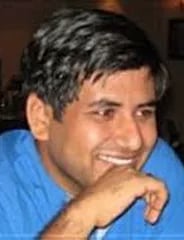Date: Tuesday, 28 June 2016, 12 noon (Manila Time)
Abstract
Metastasis claims 90% of all cancer-related deaths and remains clinically insuperable. The hallmarks of metastases are processes known as Epithelial to Mesenchymal Transition (EMT) and its reverse Mesenchymal to Epithelial Transition (MET) that enable primary carcinoma cells to migrate and start new tumors at distant organs. I will present an integrated theoretical and experimental approach that elucidates how cancer cells undergo EMT and MET, and how these transitions affect their ability to initiate new tumors.
By mathematically modeling the core genetic circuit that regulates EMT/MET, we predicted that in addition to being epithelial (no migration, high adhesion) and mesenchymal (high migration, no adhesion), cancer cells can stably adopt a hybrid epithelial/mesenchymal (E/M) state (both migration and adhesion) too that enables them to migrate collectively. We also identified factors that help stabilize this hybrid E/M state and can lead to forming the clusters of circulating tumor cells (CTCs); these predictions were later validated in experiments on H1975 lung cancer cells.
Finally, by mathematically modeling the EMT/MET circuit with that regulating ‘stemness’ or tumor-initiation ability, we predicted that cells in a hybrid E/M state can form much more tumors as compared to mesenchymal cells, a prediction that is corroborated by recent experimental data in many cancers. Our integrated experimental-theoretical approach identifies multiple advantages that a hybrid E/M state offers during metastasis, and proposes novel potential targets that can disturb collective migration of cancer cells, thereby halting metastases.
 Mohit Kumar Jolly, MSc, PhD Student
Mohit Kumar Jolly, MSc, PhD Student
Department of Bioengineering and Center for Theoretical Biological Physics at Rice University, Texas, USA
http://mkjolly.blogs.rice.edu/
About the Speaker
Mohit is a senior graduate student in the Department of Bioengineering and Center for Theoretical Biological Physics at Rice University. He graduated from IIT (Indian Institute of Technology) Kanpur with Bachelors’ in Biological Sciences and Bioengineering (BSBE) in 2010 and Masters’ in 2012. He is one of the four winners of iBiology Young Scientist Seminar Series 2016.
TO JOIN THIS WEBINAR: Send an email to: wcestina@gmail.com and ask for the weblink.
